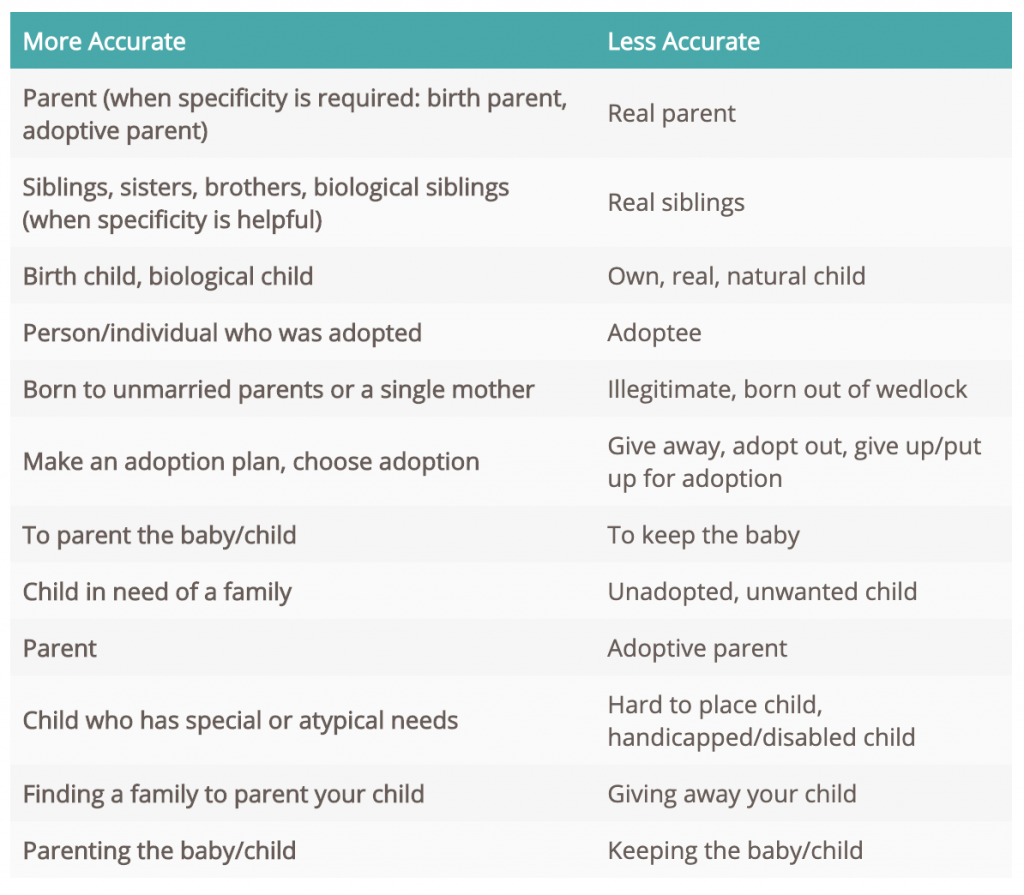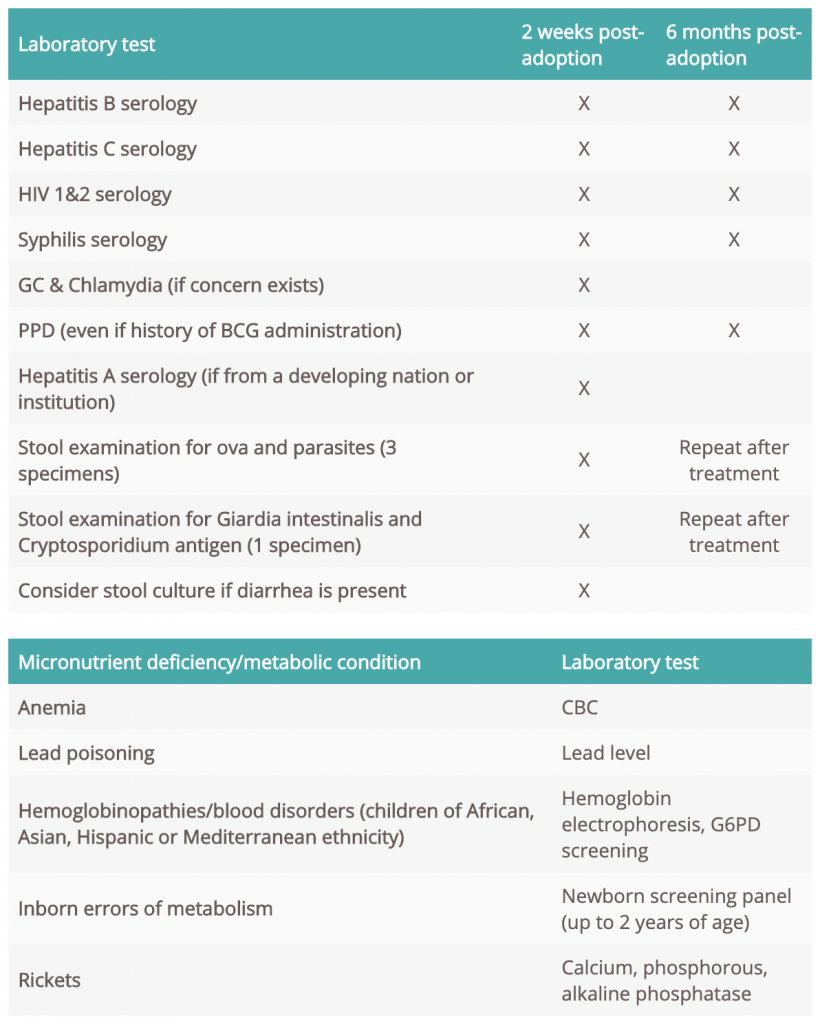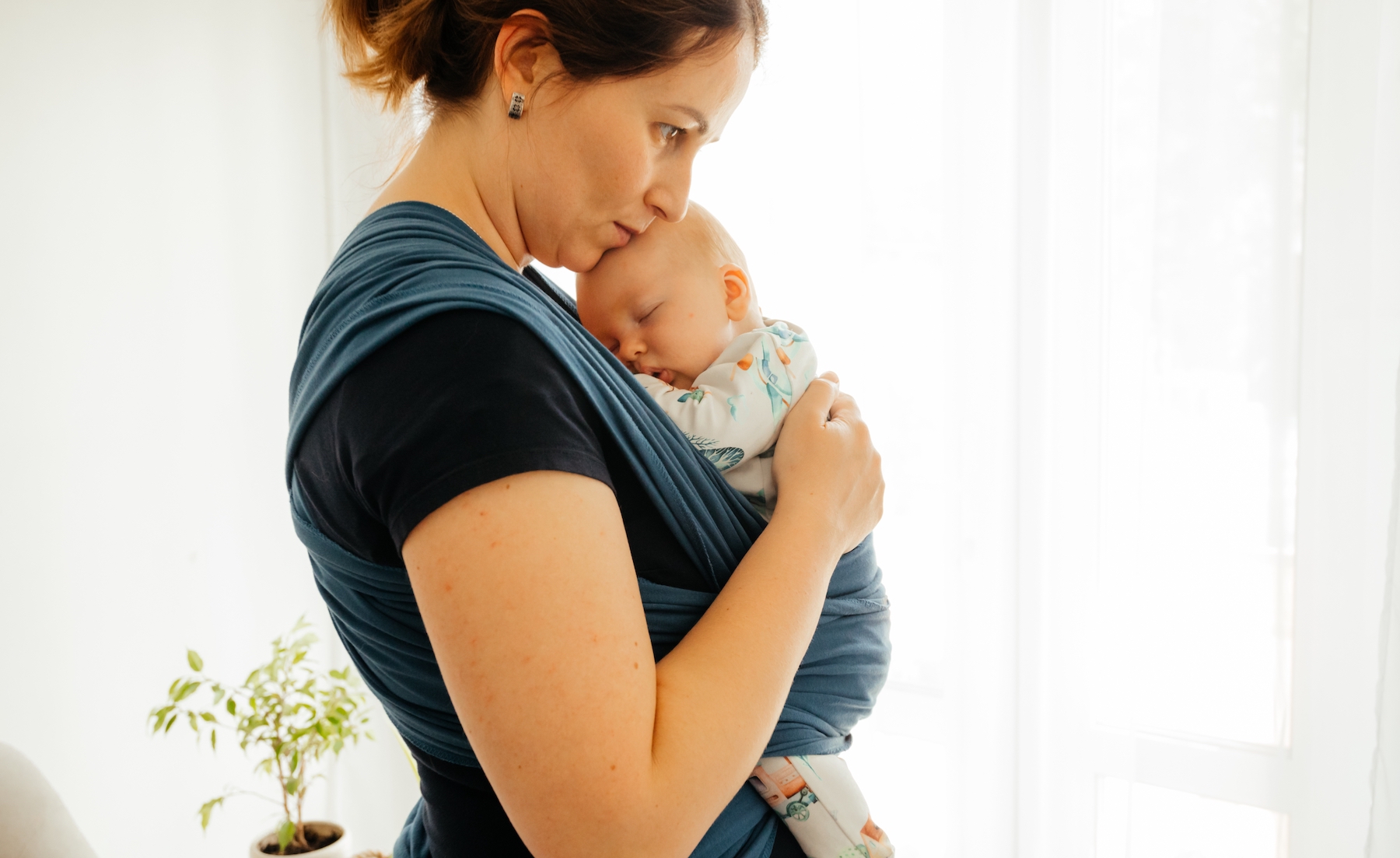Adoption Medicine: Improving the Health and Wellbeing of Adopted Children
Adoption Advocate No. 92
Introduction
First, let me answer the question on everyone’s mind: What is adoption medicine? Children who join families through adoption may have special health, behavioral, and developmental needs. Adoption medicine addresses those needs with the family in all phases of the adoption journey. Those of us in adoption medicine are typically pediatricians, but we have a variety of additional training beyond pediatrics, in areas such as genetics, infectious diseases, global health, and developmental or behavioral pediatrics. We apply our skills in all phases of the adoption journey – both before and long after an adoption to help children adopted via all types of adoption.
Within the American Academy of Pediatrics (AAP), there exists the Council on Foster Care, Adoption, & Kinship Care (COFCAKC). This is a group of pediatricians with a special interest in adoption, kinship care, and foster care. These pediatricians are dedicated to improving the health and wellbeing of children and youth in foster care and kinship care, as well as those who have been placed in permanent adoptive families.
Physicians play an important role in caring for the health and wellbeing of children as they grow and develop over the years. This article provides an overview of the roles both primary care pediatricians and adoption medicine physicians often play during the adoption process and beyond.
Pre-Adoption Consultation
Once you decide to grow your family through adoption, one of the first steps in the process – and likely your first encounter with an adoption medicine physician – is “Deciphering the List.” You know the List: the one with all the medical terms and conditions that prospective adoptive parents are given to review before being asked to make decisions about whether they feel able to parent a child with needs or conditions that they might never have heard of before.
This is one of those times when I recommend parents talk to an adoption medicine physician instead of consulting Dr. Google. While typing a term into a search engine will get you thousands of results, it’s harder to know which information you can actually trust. (This is true for many things you type into a search engine, but especially medical terms.) A medical condition such as a congenital heart defect can have a wide range of severity, from minor (no treatment needed) to life threatening, and everything in between. You need to know about the full range of possible congenital heart defects, and whether or not you are equipped to parent a child with a heart defect and meet their needs.
Once you find an adoption medicine physician, your discussion about medical terms and potential conditions on the list is a conversation you can have by phone, video chat, or email. I like to have my clients think about what their current lifestyle is like and what their interests are. Letting me know these things helps me tailor the discussion to those needs. An adoption medicine physician can help you sort through all of these confusing medical terms and conditions to help you feel more informed and comfortable moving forward with your adoption plans.
Finding a Pediatrician
Eventually the waiting will be over and it will finally be time to bring your child home! But before that happens, you can be looking for a pediatrician who will address and help meet your child’s routine medical needs.
Ideally, all adopted children would be cared for by a pediatrician with years of experience in caring for adopted children, in-depth knowledge of the results of in utero drug exposure and toxic stress, and confidence in managing reactive attachment disorder, neurodevelopmental deficits, and post-traumatic stress disorder. But the reality is that pediatricians with this kind of experience are not very common. In all likelihood, your child will be cared for by a pediatric care provider (a pediatrician, family practitioner, nurse practitioner, or physician’s assistant) who is simply knowledgeable and good at caring for children. And that’s okay! The most important thing is to have a provider that you can have a dialogue with. You need a provider you can talk to, ask questions of, and get answers from in return, even if sometimes the answer is “I don’t know, but I’ll get back to you.” You need a provider who will listen to your concerns and try to help you come up with a reasonable plan of action. You need a provider who will refer your child to a specialist if the topic is out of their scope of practice or comfort zone. And if you don’t have such a provider, you need to find a new one!
But how? Regardless of whether you are bringing home a newborn or an older child, you can contact local pediatric care providers to set up "Meet the Doctor" visits. This is a great way to check out a medical practice, see the facilities, learn about the providers, learn about their procedures for after-hours care and referrals, and so much more. Feel free to ask about a provider’s experience in caring for adopted children. There are many competent pediatricians out there with years of experience caring for adopted children, but not all of them happen to call themselves adoption medicine physicians.
If, after your visit, you do not feel like the medical practice is a good fit for your family, look elsewhere. Not all medical practices are the same, or a good fit for every child. You just need to find the one that is best for your child and your family.
Reviewing the Adoption File
So now you have checked off the list, picked a pediatrician, and completed your home study. Finally you are presented with a file and told to have a physician review it with you so you can make a decision about the child referred to you.
This, again, is a time to seek out an adoption medicine physician. You might be wondering if you can just have the pediatrician you’ve found review the file. Many physicians have indeed provided this service for families, but doing so is not necessarily within their scope of practice. A physician has a panel of patients they are responsible for – their care includes physicals, sick visits, labs, x-rays, referrals, follow-up. But your child is not yet a part of that panel, and so the pediatrician you’ve selected will be unable to add them to the schedule or bill insurance for their time. Thus, the physician is completing a file review on their own time and their own dime. While many physicians may be willing to do this for a family, you can imagine that their review of the file may not be quite as thorough as it could be.
Furthermore, the training and experience that adoption medicine physicians have in reviewing medical files, particularly medical files from other countries, will provide you with a great deal of insight into the growth, health, and development of the child in question. In my practice, for example, I spend several hours reviewing the documents, photos, and videos provided and creating a comprehensive report of all of my impressions, recommendations, and anticipatory guidance. I encourage you to seek the same kind of review from an experienced adoption medicine physician to make sure your file is being examined thoroughly and completely.
Post-Adoption Care
The long wait is over! You have finally brought your child home. Now it’s time to go to the pediatrician.
Newborns
If you are bringing a newborn home, you will follow the typical newborn visit schedule. The pediatrician will probably want to see the baby at 1 week old, then again at 2 weeks. The first year will include visits at 2 months, 4 months, 6 months, 9 months, and then 12 months of age. These visits will include vaccinations, monitoring your child’s development, and anticipatory guidance. The pediatrician’s office is your one-stop shopping place for all of your questions and concerns about your baby’s growth and development. From teething to sleep training, when to start solids, and everything in between, the physicians and nurses at your clinic will be available to help you navigate normal childhood development. And if it’s not normal, they can help there too.
Adoptions from foster care
For children who are adopted from the foster care system, special attention should be paid to psychiatric and behavioral needs. Your child’s physician will likely utilize screening tools for psychiatric/behavioral issues in the office, but be sure to bring up any additional concerns you have as well. In addition, medical records for these children may be fragmented, duplicated, or missing; you may need to go on a bit of a scavenger hunt to try and recover records for your child. Your child may also be missing important vaccinations or proper management of chronic health conditions, or be over- or under-medicated depending on their needs. Now that you have given this child a forever home, their health care needs can all be met and you can move towards health maintenance and prevention rather than reaction.
Intercountry Adoptions
A child adopted internationally needs to be seen within 2 weeks of arrival in the United States, or sooner if they are sick. It is best to contact your pediatrician’s office ahead of time to let them know this is more than just an annual physical. Not only is there a lot to cover in the first visit, your child might also be fearful and need breaks from the exam. The exam will focus on accurately recording your child’s growth and development so you have an accurate record of where your child started when they arrived in the U.S. Typically, internationally adopted children will have a huge burst in growth, which we call “catch-up growth,” in the first 6 to 12 months after arriving in the U.S. Children also typically have a burst of developmental skills acquisition upon arrival; the enriched, loving environment and parental focus gives these children the support they need to gain many skills in a short period of time. If your child initially appears to have developmental delays, they should be monitored and reevaluated 3-6 months post-adoption before they are referred for most therapy services.
In addition to growth and development, your child’s pediatrician should evaluate them for undiagnosed health problems, especially infectious diseases and micronutrient deficiencies. Parts of the evaluation will be determined by your child’s birth country. Testing for infectious diseases should occur at the initial visit, and then be repeated at a visit 6 months later. While your child may have had much of this testing in their birth country just prior to adoption, the testing must be repeated once they arrive in the U.S. Some health conditions will be known before the child comes home, and your pediatrician can make referrals to the appropriate providers to help evaluate and manage these conditions.
More than 90% of newly arrived internationally adopted children require catch-up immunizations to meet Advisory Committee on Immunization Practices (ACIP) guidelines. According to the Centers for Disease Control and Prevention (CDC), an internationally adopted child should be considered susceptible to disease and be vaccinated (or revaccinated) against vaccine-preventable diseases if vaccination records cannot be located, are incomplete, cannot be understood, or the child’s parent(s) or doctor believe them to be inaccurate. If you are unsure as to whether or not your child was vaccinated, it is possible to have your child’s blood tested for antibodies to determine their immunity to certain diseases. In some cases, you and your pediatrician may prefer to revaccinate your child to ensure the best protection. It is safe for your child to be revaccinated, even if your child received that vaccine in their birth country. Talk to your child's physician to determine which vaccines are needed. Any immunizations should be given according to the current ACIP schedule for catch-up vaccination.
When to refer
In my experience, many adopted children will need a referral at one time or another. Again, it is important for parents and pediatricians to have open lines of communication so that a referral can be made in a timely manner in order to best meet the needs of the child.
In utero exposure to drugs or alcohol can affect physical, social/emotional, and cognitive development. Children exposed to these substances in utero will likely need a referral for early intervention services, a program designed to promote age-appropriate growth and development among children aged 0-3 years in order to maximize their overall development. Exposure to drugs or alcohol can also result in difficulties in school, including learning disorders and behavior regulation issues. I advocate for formal neurodevelopmental testing to be performed through an independent clinic (not the school or district) in order to get a thorough picture of the child’s strengths and needs in the areas of learning and behavior. Ideally this should be done as the child is entering school (Kindergarten or first grade); your pediatrician can recommend and refer your child for appropriate testing.
Similarly, children who were adopted internationally may need early intervention services to overcome developmental delays resulting from environmental deprivation in institutional settings. Children who were in foster homes prior to adoption are likely to be more on track with their development, but should still be closely monitored to ensure they are continuing to make appropriate developmental gains. Again, giving internationally adopted children some time to adjust to a new home environment prior to referral for developmental delays is prudent, as they may catch up on their skills independently.
Children who were adopted at an older age have likely met all of their developmental milestones already, but may need referrals for psychiatric or behavioral issues. In general, children who have experienced abuse, neglect, or lack of consistent caregivers are at higher risk for emotional/behavioral issues, and should be screened for difficulties at all well-care visits – or sooner, if indicated. Having an open dialogue with your pediatrician will be key to meeting your child’s needs and making appropriate referrals.
A note on terminology
There are some terms that are better and more accurate to use when talking about adoption, birth parents, and children who are adopted, and some that are less accurate.* But most physicians do not know this, because accurate adoption language is not a topic covered in medical school, residency, or fellowship. You can always share your list of accurate adoption language with your pediatrician. Physicians would never want to offend our patients or their families, and we are always willing to learn!
* See Appendix: Adoption Medicine Factsheet (below) for more discussion and recommendations.
Conclusion
Remember, as a parent, you will know your child better than anyone else. You will celebrate their strengths and worry about their needs. You are their biggest advocate and staunchest supporter. As your child grows and develops through the years, your family’s support team will be made up of many members – adoption medicine physician, pediatrician, therapists, counselors, teachers, coaches, friends – who will all be working toward the common goal of helping your child thrive and achieve their maximum potential. I hope this article has given you some needed insight into the important role physicians can play in helping your child stay healthy, develop, and succeed.
APPENDIX: ADOPTION MEDICINE FACTSHEET
DOWNLOAD A PRINTABLE VERSION OF THIS FACTSHEET >>
While many families choose to grow their family through adoption, most pediatric care providers have not been trained in adoption medicine. This handout includes a list of resources and materials to help support a child’s primary care provider in the care of an adopted child.
General Resources
- American Academy of Pediatrics: Council on Foster Care, Adoption & Kinship Care. Available online: http://www2.aap.org/sections/adoption/index.html
- Adoption Medicine: Caring for Children and Families. Published 2014 by American Academy of Pediatrics. Available online: shop.aap.org
- Jones VF et al. The pediatrician’s role in supporting adoptive families. Pediatr. 2012 130(4) e1040-9. doi: 10.1542/peds.2012-2261.
- CDC Yellow Book. Chapter 7 International adoption. Available online : http://wwwnc.cdc.gov/travel/yellowbook/2016/international-travel-with-infants-children/international-adoption
- American Academy of Pediatrics. Medical Evaluation of Internationally Adopted Children for Infectious Diseases. In: Pickering LK, Baker CJ, Kimberlin DW, Long SS, eds. Red Book: Report of the Committee on Infectious Diseases, 29th ed. Elk Grove Village, IL: American Academy of Pediatrics; 2012:191-199.
- American Academy of Pediatrics. Helping Foster and Adoptive Families Cope with Trauma. Available online at: https://www.aap.org/en-us/advocacy-and-policy/aap-health-initiatives/healthy-foster-care-america/Documents/Guide.pdf
Immunizations
The CDC provides a catch-up immunization schedule for individuals aged 4 months through 18 years who are more than a month behind or are getting a late start. A chart can be found online at: http://www.cdc.gov/vaccines/schedules/hcp/imz/catchup.html
Accurate Adoption Language
Words can convey emotions and values as well as facts. By using the most accurate adoption language we can not only correctly identify the person or situation, we can do so with respect for all parties involved.

Medical Evaluation Following International Adoption
The following information is compiled from recommendations by the CDC and the AAP for all internationally adopted children. Laboratory tests should be completed at the 2-week post-adoption visit (and repeated as indicated), along with a comprehensive physical and developmental examination. For children adopted internationally, all testing completed prior to the adoption should be repeated upon arrival in the United States.

A comprehensive physical examination is recommended for all internationally adopted children within 2 weeks of their arrival in the United States. The following items are recommended:
- Temperature (fever requires further investigation)
- Anthropometric measurements: height/age, weight/age, weight/height, head circumference/age – plotted on WHO scale (refer if no catch-up growth by 6 months post-adoption)
- Facial features: dysmorphology, signs of FASD
- Eyes: strabismus, jaundice, visual acuity screen
- Ears: otitis media, hearing screen
- Mouth: palate, teeth (dental referral)
- Neck: thyroid
- Heart: murmurs
- Chest: symmetry, Tanner stage breasts
- Abdomen: liver or spleen enlargement
- Skin: scars, Bacillus Calmette-Guérin (BCG) scar, hyper/hypopigmentation, birth marks, tinea infection, scabies, molluscum contagiosum
- Lymph nodes: enlargement suggestive of TB or other infection
- Back: scoliosis and hair tufts
- Genitalia: Tanner stage, presence of both testicles, female genital mutilation, sexual abuse
A thorough age-appropriate developmental screening should also be performed at the 2-week post-adoption visit. If a child is found to have developmental delays, they should be closely monitored. Referral should be considered if there is not significant skills acquisition in the first 6 months post-adoption.
Further evaluation of the child will depend on their country of origin, their age, previous living conditions, their nutritional status, their developmental status, and specific questions that may have arisen from the pre-adoption medical review.




